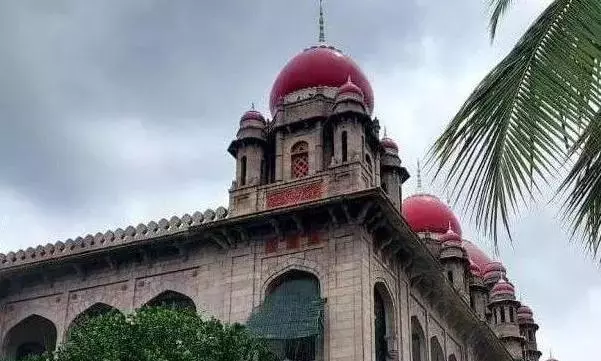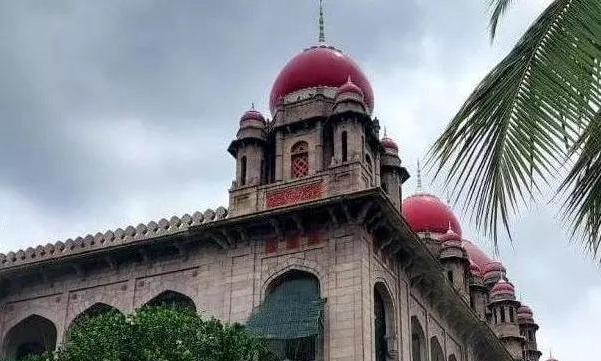
Hyderabad: Justice T. Vinod Kumar of the Telangana High Court directed the state education department and others to place on record the eligibility criteria for local students entitled to the fee reimbursement scheme. The judge took on file a writ plea filed by Banka Vasanthi, a student, challenging the non-inclusion of her MBA course admission under the scheme.
Earlier, as an interim measure, the judge directed the respondents to allow the petitioner to pay the examination fee and appear for her first semester MBA examinations, pending final disposal of the writ petition. It is argued that respondents’ decision to deny her benefits under the scheme is arbitrary and violates her fundamental rights under the Constitution. The petitioner further contended that, despite having completed her X standard education in Telangana, the respondents refused to consider her eligibility for the scheme, allegedly based on her Andhra Pradesh domicile status.
The petitioner, currently enrolled in an MBA programme at Vaagdevi Engineering College, Bollikunta, sought directions to the respondent authorities to extend fee reimbursement benefits to her. She also challenged the guidelines issued by the social welfare department, alleging that they contradict article 371-D of the Constitution and a GO dated July 10, 1979.
The assistant government pleader, appearing for the respondent authorities, submitted that the petitioner is not entitled to the relief sought, as she is a resident of Andhra Pradesh. The judge questioned whether the fee reimbursement program is limited to 85 per cent local candidates or if non-locals are also eligible for the scheme. The respondents sought time to place on record the eligibility criteria, and posted the matter for further hearing after one week.
TSSPDCL’s demand for Rs 69 lakh charges challenged in HC
The Telangana High Court will hear a writ plea challenging the demand for payment of over Rs 69 lakh by TSSPDCL. Aadeshwar Aggregates private limited filed a writ plea alleging that the respondent authorities raised a demand of payment of over Rs 69 lakh as monthly minimum charges for the period between December 2020 and July 2022, despite the fact that it was already cleared by the petitioner.
It is the case of the petitioner that the alleged period of payment of minimum charges was settled by the petitioner. An earlier writ plea was disposed of by the court directing payment of certain amounts for the same period in favour of the respondent authority. The petitioner alleged that even after fulfilling and settling all the payments as directed by the court earlier, this new demand for minimum charges by the respondent authority was illegal and highhanded.
The petitioner anticipated the threat of disconnection of power supply too. The government pleader, appearing on behalf of the respondent authorities, argued that the charges paid by the petitioner as under the orders of the court in an earlier writ plea were up until the date of termination of an earlier contract. The raise of demand of minimum charges under challenge in the present writ plea was raised for a subsequent period. After hearing the parties, Justice Surepalli Nanda directed the government pleader to seek instructions and file a response on behalf of the TSSPDCL, explaining their position on the said matter. The judge further directed the authorities not to take any coercive steps in pursuance to the impugned notice raising demand of payment upon the petitioners and posted the matter for further adjudication.
LIC directed to settle ₹9.90 lakh policy claim
A two-judge panel of the Telangana High Court overturned an order passed by the National Consumer Disputes Redressal Commission (NCDRC), which had denied a life insurance claim on the grounds of material misrepresentation.
The panel, comprising of Justice Sujoy Paul and Justice G. Radha Rani, was dealing with a writ plea filed by Hema Agarwal. The case involved a Jeevan Tarang policy issued by the Life Insurance Corporation of India (LIC) and a claim filed by the policyholder’s widow after his death. The petitioner’s husband obtained the policy in 2009 and passed away in 2010 due to heart attack.
LIC rejected the policy claim, alleging that the deceased failed to disclose the existence of four previous policies.
The widow, however, initiated a legal battle, which began at the district forum and proceeded through the state and national commissions. The state consumer disputes redressal commission ruled in favour of the petitioner, stating that the alleged non-disclosure was immaterial. However, the NCDRC later overturned this decision.
The panel held that the NCDRC had erred in condoning a 580-day delay in LIC’s filing of the revision petition without adequate justification. It also noted that LIC’s claim of material misrepresentation lacked validity, as the company had prior knowledge of the policyholder’s earlier policies and had accepted premiums accordingly.
After perusing the material on record, the panel emphasised that contracts of insurance operate on the principle of utmost good faith, but in this case, LIC’s position was undermined by its own knowledge of the previous policies. The panel held that the non-disclosure of earlier policies was inconsequential and upheld the state commission’s decision in favour of the petitioner. The petitioner was awarded the insured sum of ₹9,90,000, along with interest and compensation.
